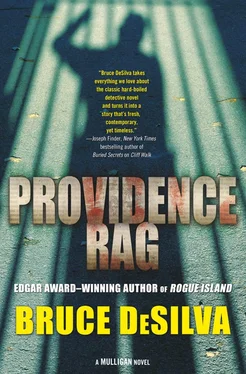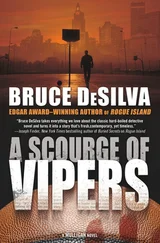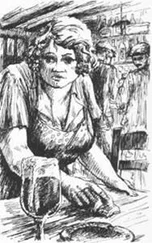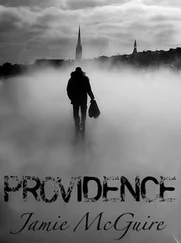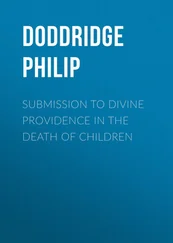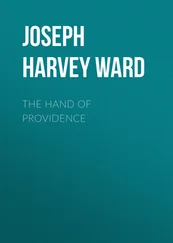“There is. A source tells me there might be surveillance footage of Diggs acting freaky a couple of other times.”
“Where and when?”
“March twelve, 2005, and October twenty of last year,” Mason said. “Both times as he was being led from his cell to the exercise yard.”
“Prisoners can be taken to the yard any time between eight A.M. and four P.M. Can you narrow down the time any?”
Mason could. Testimony at the two assault trials had established the exact times of both alleged attacks. But what he said was, “Sorry, but I can’t.” The less Sockol knew, the better.
“Okay, then,” Sockol said. “Diggs’s cell is about sixty yards or so from the yard, so that means video from a half-dozen cameras. With eight hours of video from each camera, that’s… uh… forty-eight hours for each day. No way I’ve got time to wade through all that. I’ll have to download it all for you if that’s okay.”
“That would be fine.”
“The stuff from 2005 might have been deleted, but I’ll look to be sure. The other date is no problem. Just give me a day or two, okay?”
* * *
In 1989, The New Yorker published “The Journalist and the Murderer,” a two-part series by Janet Malcolm. In it, the author painted a cynical portrait of the journalist. “He is a kind of confidence man,” she wrote, “preying on people’s vanity, ignorance, or loneliness, gaining their trust, and betraying them without remorse.”
Four years ago, Mason’s journalism ethics professor at Columbia had made the infamous article required reading, and it ignited a spirited in-class debate. Mason disputed Malcolm’s point, arguing that it probably said more about the kind of journalist she was than it did about journalists in general. But now, he found himself rethinking his position.
Malcolm was dead-on, he decided. Except for one thing. She got the lack of remorse part wrong.
* * *
“Edward Mason, Providence Dispatch .”
“Hello, Mr. Mason. This is Detective Sergeant Christopher Sullivan of the Newport PD.”
“Yes?”
“Can you tell me, sir, if you have been having trouble with anyone? Have you received threats of any kind?”
“Can you tell me why you are asking?”
“After you answer my question.”
“Some people are unhappy about a story I’ve been working on for the Dispatch .”
“What kind of story?”
“One involving the State Department of Corrections.”
“Can you be more specific?”
“I’d rather not do that on the telephone.”
“I see. Can you tell me, then, how this unhappiness has been expressed?”
“I’ve received several threatening notes in the mail, a couple of messages were left on my Prius, and the car was vandalized twice in the state prison parking lot.”
“I see. Did you file police reports about the vandalism?”
“I did, with the Cranston police.”
“And do you still have the threatening messages?”
“I still have the ones that came in the mail. The others were in the form of alphabet refrigerator magnets placed on my car door, but I took photos of them with my phone.”
“Could you stop by and bring the letters and the photos with you?”
“Certainly. Can you tell me what this is about now?”
“Sir, your car fire earlier this week was not an accident. Someone tampered with the vehicle.”
“Tampered how?”
“Someone poured nitromethane into your gas tank.”
“Nitro- what ?”
“Nitromethane. It’s an organic compound commonly used in industrial applications.”
“What kind of applications?”
“The way it was explained to me, it’s used in the manufacture of pesticides, explosives, and coatings, and is also widely used as a cleaning solvent.”
“What did it do to my car?”
“Again, as it was explained to me, the compound makes an automobile engine run very hot. As you probably know, sir, your Prius runs on electric power only until it reaches forty miles per hour. At higher speeds, the gasoline engine kicks in.”
“And when it did, it ran so hot that it caught fire?”
“That is correct.”
“What time do you get in tomorrow morning, Detective?”
“I’ll be at my desk by eight.”
“I’ll see you then.”
“Fine. And in the meantime, sir, I suggest that you take precautions.”
Ten minutes after Mason signed off, the phone rang again. This time it was his insurance agent calling to tell him that his automobile policy had been canceled. Great. To get back on the road, he was going to have to find an insurer with a high-risk pool and pay three times the normal rate.
“What’s in the package, Thanks-Dad?” Mulligan asked.
“Some video.”
“Of what?”
“Of Diggs inside Supermax.”
“ What? How the hell did you get that?”
“A source.”
“What’s on it?”
“Come along,” Mason said, “and we’ll have a look.”
Three small conference rooms, each equipped with a computer, were located just off the main newsroom. The reporters entered one of them, and Mason ripped open the package. Inside was a portable hard drive. Mason fired up the computer, connected the hard drive, and found seven video files. One was dated August 5, 2011, the date of the prison poetry workshop. The other six were dated October 20, 2011, the day Diggs allegedly assaulted a guard named Joseph Galloway. There was nothing from the date of the alleged assault in 2005. Apparently, that video had been deleted from the Corrections Department’s records.
Mason opened the August file first and discovered that it was in color and included audio.
A dozen prisoners sat in molded plastic chairs arranged in a half circle. Mason pointed his finger at the screen, indicating where Diggs slouched. His long legs stretched out in front of him, and his eyes were closed.
The speaker was prattling about how the prisoners could explore their deepest feelings through poetry. All they had to do, he said, was discover something he called “your second throat.”
“Quite true,” Mason said. Mulligan didn’t say anything. To him, it sounded like psychobabble. As the poet droned on, Diggs never stirred. His eyes remained closed.
After five minutes of this, Mason hit the fast-forward button, stopping several times to check on Diggs. Each time he was the same. There was no hint that he was paying attention.
Mason clicked the fast-forward button again, slowing the video when the poet distributed notebooks and urged the prisoners to write. Most ignored him, but a few started scribbling. Diggs appeared to be asleep.
Fast-forwarding again, Mason found the part where the first prisoner, a skinny dude with a shaved skull and a swastika neck tattoo, rose to read his poem to the group.
My moms, she was an angel. I was her baby boy.
She loved me unconditionally. She thought I’d bring her joy.
But I became a gangster, seduced by the streets.
Now I cool my heels in Supermax
While my moms sits home and weeps.
“Good Christ!” Mulligan said. “I can’t take much of this.”
“Look at Diggs,” Mason said. The big man was hunched over a pad of paper now, scribbling furiously.
Mason hit the fast-forward button again, stopping just as Diggs pulled himself to his feet.
“Can a brother get a beat?” he said.
Half the prisoners responded, and Diggs bounced to the rhythm of their beatboxing.
Some blondes they come from bottles. Some come from DNA.
But you can’t tell the difference till you tear their clothes away.
Читать дальше
